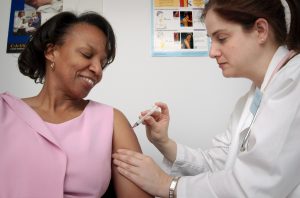Hepatitis: Find The Missing Millions
Every year on July 28th, we observe World Hepatitis Day. This is a day to raise awareness and connect those infected with proper care. It is estimated that nearly 300 million people are walking around infected, completely unaware. The main way to remedy this issue is to spread awareness, encourage people to get tested, and receive treatment.
Prevention
The goal is to eradicate all forms of viral hepatitis by the year 2030. While we’ve seen a decrease in diseases like tuberculosis and HIV, cases of hepatitis have continued to rise. The CDC’s main tool of prevention has been to encourage vaccination. Both hep A and B have vaccines, with hep B being most commonly spread from an infected mother to her child during birth. This is why the hep B vaccination is recommended for infants before leaving the hospital.

Hep C, D, and E do not yet have vaccines. However, hep C can be treated in 90 percent of cases. Hep D is only contracted when an individual is already infected with hep B. So vaccinating against hep B can also protect against hep D.
Types of Hepatitis
Viral hepatitis comprises types A, B, D, D, and E. These are infectious diseases that spread easily from person to person and lead to liver disease.
Hepatitis A – Hep A is rarely fatal, but does cause some serious symptoms. In the US it is spread through close personal contact with someone who is infected. Poor sanitation and hygiene can also lead to its spread worldwide.
Hepatitis B – This virus is the one most commonly spread from mother to infant at birth. This is why it is recommended that all infants receive the vaccine as soon after birth as possible. Hep B can lead to cirrhosis of the liver and liver cancer.
Hepatitis C – There is currently no vaccine for Hep C, although 90% of cases are able to be cured. This virus is usually transferred through infected blood, by the sharing of needles or improper medical treatment. The research for a vaccine is ongoing.
Hepatitis D – Hep D can only be contracted by someone already infected with Hep B. So even though there is no vaccine for it, the best way to prevent it is by being vaccinated for Hep B.
Hepatitis E – Hep E is typically contracted from contaminated drinking water, usually in areas with poor sanitation and water filtration. It is most deadly to pregnant women.

How to Get Tested
So while millions are walking around infected with hepatitis, they are unknowingly endangering themselves and others. We need to get those who are infected tested and connected to treatment. How do you get tested? A simple blood test can be performed by your doctor. This will determine what type of virus you may have as well as its severity. The doctor may also examine your liver to look for signs of inflammation.
Someone can be infected with the virus and not show any symptoms for years. So it’s important to get tested if you fall into any one of these categories:
- Baby boomers (those born between 1945 and 1964) are much more likely to be infected.
- Anyone who has had a blood transfusion or organ transplant prior to 1992
- Anyone who has ever (even once) injected illegal drugs or shared needles.
- People with tattoos.
- Anyone born to someone infected with a hepatitis virus.
Treatment Options
In general, most forms of hepatitis are either treatable or resolve on their own with rest and proper care. For acute hep C and chronic forms of both hep B and C, an antiviral medication may be prescribed. There are no medications available at this time to treat hep D or E. If extensive damage is done to a person’s liver, a liver transplant may be required.

For more in-depth information about hepatitis, its symptoms, and treatment options, please visit the links in our Wellness Observance Calendar. We have the most comprehensive Wellness Calendar available and we offer it to you as a free download for your resource!

